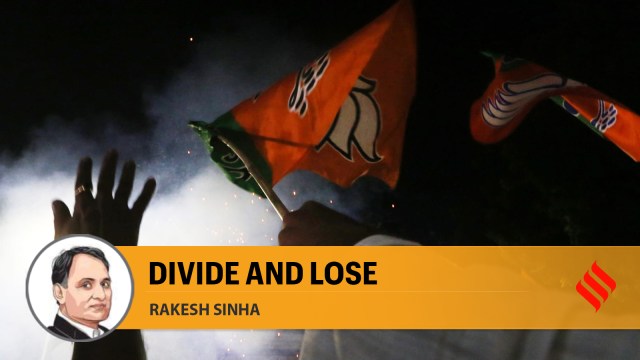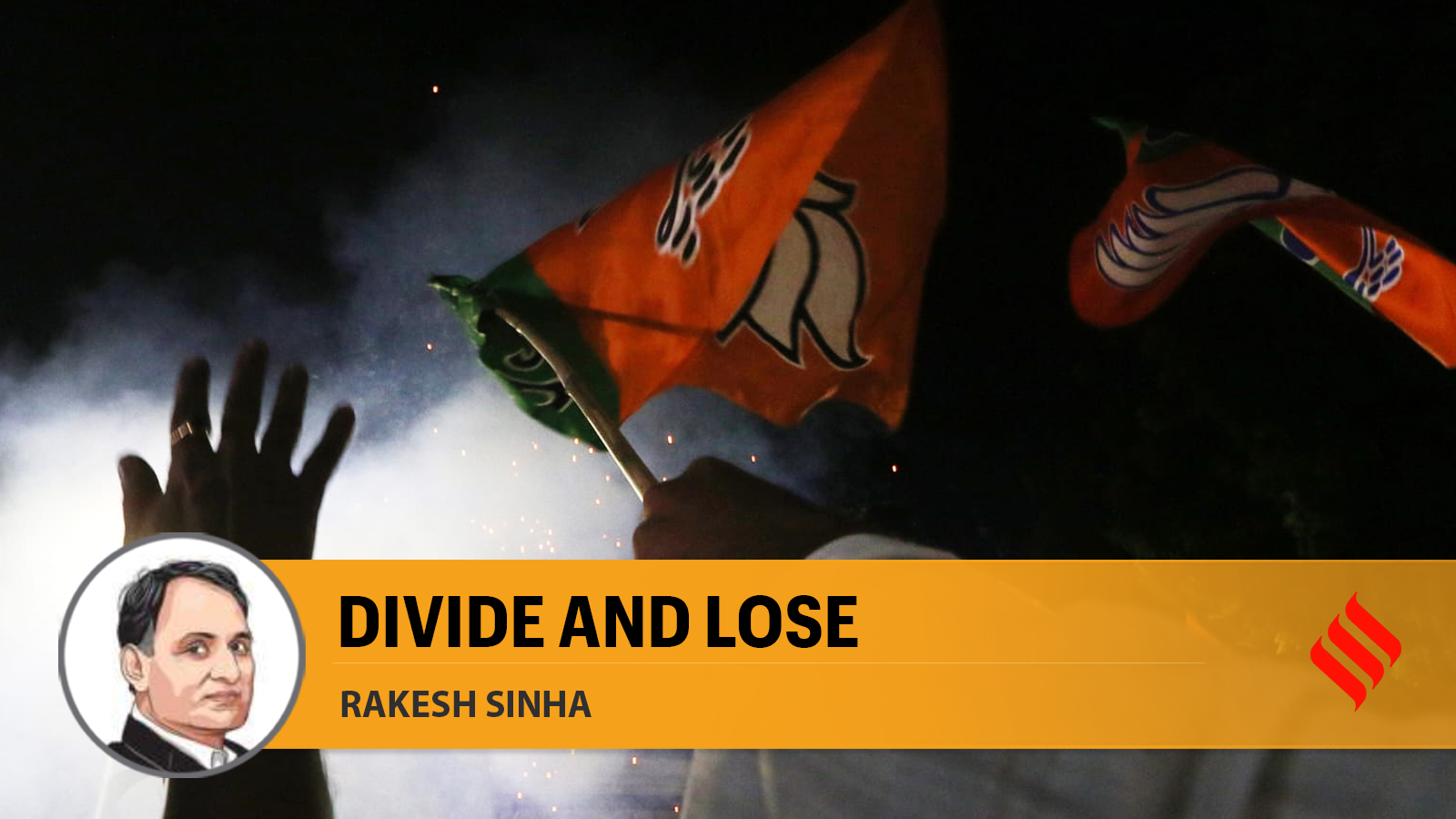
The election results of Haryana and Jammu & Kashmir tell two different stories and defy narratives. The reason is obvious. The assembly polls were important, especially in terms of a broader political perception, because they were the first major elections after the Lok Sabha polls in which the BJP’s tally was reduced. Since then, opposition parties, primarily Congress and its leader Rahul Gandhi, have spread propaganda against the BJP with great vigour. Yet, they do not have anything concrete with which to sway the people against the ruling dispensation. Propaganda can’t change reality.
The Haryana election result is undoubtedly not a verdict for Manohar Lal Khattar or Bhupinder Singh Hooda. They may have been the primary actors, but the election was about far more. Had the BJP been defeated, it would not only have emboldened the Opposition parties but also encouraged them to initiate a fresh campaign against the BJP in general, and Prime Minister Narendra Modi in particular.
Although Haryana is a small state, it is a litmus test. The Opposition’s delusions of a victory foretold proved to be a boon for the BJP. There is no doubt that the Haryana election was a referendum on Modi’s popularity and the impact of the BJP’s socio-economic programmes.
Four factors led to the BJP’s victory. One, the nationalisation of the election diverted voters’ attention from local leaders and factors. The massive welfare programmes created a strong, silent vote bank for the BJP, especially among the marginalised classes. They remain unmoved by the caste and religious appeals of local leaders. Women and youth are also among the beneficiaries of Modinomics.
Second, the social philosophy of the Congress has not evolved. The party has been unable to gauge either the public sentiment or the impact of Hindutva on the Indian mind. Rahul Gandhi has been trying, with dedication, to resurrect an old version of secularism. The Congress is mired in a lack of clarity as far as culture, religion and the legacies of the nation are concerned. There is now no one in the party — like Sampurnanad or K M Munshi — to engage and debate with Rahul Gandhi on vital social and cultural issues. He is both an ideologue and a leader. This was not the case with Jawaharlal Nehru or Indira Gandhi.
Third, the centre of the Congress campaign was the home of its leader, Hooda. The BJP, on the other hand, works — literally and symbolically — through the party. The message is clear. In a democracy, people can’t be hostages to a dynasty. Literacy is growing, and so is democratic consciousness.
Fourth, as a result of its politics, Congress has become the party of a particular caste in Haryana. The BJP’s outreach and ideology is more holistic. Moreover, Congress failed to reorganise or reorient its workers at the grassroots. Its success depends on fragmentation in society. Therefore, it allies with leaders and forces who galvanise caste, communal and regional politics. This is the Congress’s folly. The BJP used constructive social programmes to enhance its social support base.
The verdict in Jammu and Kashmir is unfavourable to the BJP — but the result is also about a less obvious narrative. This was the first election after the abrogation of Article 370. The abrogation heralded a new era in the state. In the last six years, the state has experienced much-desired development. More than two crore tourists visited J&K in 2023. More than 70 lakh beneficiaries received Rs 6,000 crore through Direct Benefit Transfer (DBT). The enrolment of 1,80,000 children in pre-primary schools shows that the days of stone-pelting have ended. The empowerment of panchayats and local leadership is visible in the state.
Nevertheless, the Muslim-majority state has rejected the BJP. The onus is not on the saffron party. Its policies and programmes remain non-discriminatory. The larger question is about the impact of religion on voting. Diversity is not only essential to cultural and social life — it is in politics too. Segmentation along caste or community lines can make democracy stagnant.
Political modernity requires thinking in terms of development and non-sectarian policies. The BJP’s outreach to Muslims is a part of the democratic process but more important is Muslims’ outreach to the Hindus in general and RSS in particular. For the last hundred years, the process has been one-sided.
The arrival of more and more people from outside the state — in diverse roles and professions, including business, government workers, etc — was misused as a political issue by the National Conference. The importance of safeguarding against such narratives is a lesson for the BJP.
Haryana and J&K have demonstrated that the people are now at the centrestage — an elitist politics has no purchase. Every election adds a new dimension to Indian democracy. The biggest challenge beyond the verdict is to liberate parties from a narrow, divisive approach, which undermines the values of liberal democracy. The BJP’s strength is its organisation and workers. The same is not true for the Opposition. Both in Haryana and J&K, Congress depended on dynasts and caste and communal polarisation. Will it learn or continue on a failed path?
The writer is a former BJP Rajya Sabha MP



